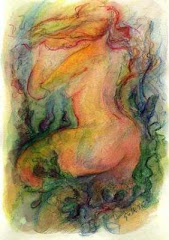 As the battle royale between Hillary Clinton and Barack Obama continues unabated, there has been much talk about the worrisome issue of reuniting the Democratic party once the dust has settled. I have written a juicy blog about it myself, and even gone so far as to encourage Hillary to withdraw now and live to fight another day. It was heartfelt advice as the handwriting on the proverbial wall became clear -- at least to me. Hey, I have no dog in this particular fight -- I was an Edwards girl. I just want a Democrat in the White House on January 20, 2009.
As the battle royale between Hillary Clinton and Barack Obama continues unabated, there has been much talk about the worrisome issue of reuniting the Democratic party once the dust has settled. I have written a juicy blog about it myself, and even gone so far as to encourage Hillary to withdraw now and live to fight another day. It was heartfelt advice as the handwriting on the proverbial wall became clear -- at least to me. Hey, I have no dog in this particular fight -- I was an Edwards girl. I just want a Democrat in the White House on January 20, 2009.
But one aspect of the ever-widening gulf amongst progressives that has not gotten as much attention is the growing breach between established women's rights leaders -- many of them ardent Clinton supporters -- and anti-war women, who back Obama just as passionately. The dynamic is fascinating, and in many ways the gulf mirrors the core issues the women's movement has been wrestling with as it has worked to redefine itself over the past decade.
To reduce the feminist primary split to merely generational -- amongst both the organized leadership of the movement as well as the foot soldiers -- dramatically oversimplifies the issue and also misses some key points. That is not to say that generational differences don't play a role in defining certain aspects of the two camps --
college women crush on Obama and
older women clearly identify with Hillary -- it's just that age is not the only factor in play, and may not even be the most important.
In fact, some of the most established, well known women's rights leaders of the past three decades are Obama supporters. As of Feb. 28, almost 1,500
"feminists for peace" had signed a petition endorsing Obama; signatories include prominent women's rights advocates such as writers Barbara Ehrenreich, Alice Walker and Katha Pollitt;
Ellen Bravo, former director of 9to5, the National Association of Working Women; political scientist Frances Fox Piven; and actor/activist Susan Sarandon. Former NARAL President Kate Michelman is also counted among Obama's supporters, having jumped to his camp after Edwards pulled out. And, of course, there's Oprah.
Because one of the things feminists do best -- like Democrats -- is kick the crap out of each other, a similar though smaller
"Feminists for Clinton" effort was initiated in response. The group includes writer/activists Gloria Steinem, Robin Morgan, and Amy Richards and Jennifer Baumgardner of
Manifesta fame; MacArthur "Genius" Fellow economist Heidi Hartmann, President of the Institute for Women's Policy Research; Gloria Feldt, former President of Planned Parenthood Federation of America; and Peg Yorkin, benefactor of the Feminist Majority Foundation. Other Clinton supporters include Martha Burk (of Augusta National Golf Club fame), who came to the Clinton camp when her man Richardson bowed out. Hillary also has the endorsement of the National Organization for Women, and support of NOW President Kim Gandy.
But wait, there was a
third feminist statement, this one by Eve Ensler, author of
The Vagina Monologues, and Kimberlé Crenshaw, a well-known womanist professor of law at UCLA and Columbia University. This dynamic duo labeled the Clinton supporters as
"'either/or' feminists determined to see to it that a woman occupies the Oval Office..." who "...interrogate, chastise, second-guess and even denounce those who escape their encampment and find themselves on Obama terrain. In their hands feminism, like patriotism, is the all-encompassing prism that eliminates discussion, doubt and difference about whom to vote for and why."
Ouch. That's the women's movement for you -- we're just one, big, activist, dysfunctional family. But truthfully, as I said earlier, the best way to analyze the primary split is to break it down along philosophical lines -- it's no coincidence that the split follows the same political fault lines at the very root of the debate over the direction of the women's movement, and what it's ultimate goals should be for women in particular and society as a whole.
Let me explain. During the heydays of the second wave of the women's movement -- the late 1960s through most of the 1980s -- the problems were very well defined, the barriers very visible, the opposition very overt, and many of the solutions very clear. The movement's goal, as well, seemed just as specific and just as clear -- gender equality. But as the women's movement continued to change and grow, and as white women finally began to listen to what women of color had been telling them for decades -- over and over again -- branches of the women's movement began to redefine the movement more broadly as a social justice movement. This was particularly true for Third Wave feminists -- my generation. The intersectionality between gender, race and class became the mantra, and more traditional gender equality advocates -- while not unsupportive of broader social justice ideals -- wondered at the wisdom of supplanting gender equality from the movement's central focus, or subverting pure gender equality goals in favor of other progressive agendas and ideals.
It seems to me that the Clinton/Obama split in the feminist community in many ways mirrors these differing philosophies. Clinton supporters, while supportive of broader social justice initiatives, are nonetheless more focused on the women's movement as a gender equality movement, and on Clinton as an important, long-awaited first in a previously boys-only club. Obama supporters seem to be more focused on the women's movement as a vehicle for broader social justice action -- the focus on anti-war activities is a perfect example. Based on this analysis, it should not be surprising that younger women, less apt to identify with equality rhetoric, are more likely to support Obama, while older women -- more familiar with women's equality issues and the need not only for continued progress but for efforts to protect our gains -- are more reassured by Clinton.
So where does this leave the women's community, those of us actively a part of it and anyone who cares about the future of an active and vibrant movement for women's rights? We're a microcosm for what's going on in the Democratic party this primary season, in that we're having a pretty messy internal debate about which direction we think is best for the movement. This election, in many ways, could be a turning point. Hopefully, though, whatever the outcome, women's advocates can reunite and face the future -- together -- stronger for having the courage to engage in the debate.
 As the battle royale between Hillary Clinton and Barack Obama continues unabated, there has been much talk about the worrisome issue of reuniting the Democratic party once the dust has settled. I have written a juicy blog about it myself, and even gone so far as to encourage Hillary to withdraw now and live to fight another day. It was heartfelt advice as the handwriting on the proverbial wall became clear -- at least to me. Hey, I have no dog in this particular fight -- I was an Edwards girl. I just want a Democrat in the White House on January 20, 2009.
As the battle royale between Hillary Clinton and Barack Obama continues unabated, there has been much talk about the worrisome issue of reuniting the Democratic party once the dust has settled. I have written a juicy blog about it myself, and even gone so far as to encourage Hillary to withdraw now and live to fight another day. It was heartfelt advice as the handwriting on the proverbial wall became clear -- at least to me. Hey, I have no dog in this particular fight -- I was an Edwards girl. I just want a Democrat in the White House on January 20, 2009.
























3 comments:
Interesting analysis, thank you for that. The problem I have with seeing feminism as a general human rights movement is that I don't see the other human rights movements focusing much on women's rights. If feminists work for general rights and others don't work for women's rights what will the impact be? Who will care about the women, irrespective of what type of women they are?
That is an excellent point. It's the superwoman syndrome but in the context of social activism. In our personal lives, women are always taking care of others first -- family, friends, job, community -- and subverting our own personal needs to the wants and needs of others. Are women doing that very same thing when we work on broader social justice issues but neglect to pay proper attention to our own rights?
I initially read this on TPM, but wanted to see this at the source. Excellent analysis, and, if you wouldn't mind, I too am thinking about linking to this post on my blog: http://www.threestonesteps.com/blog/
Post a Comment